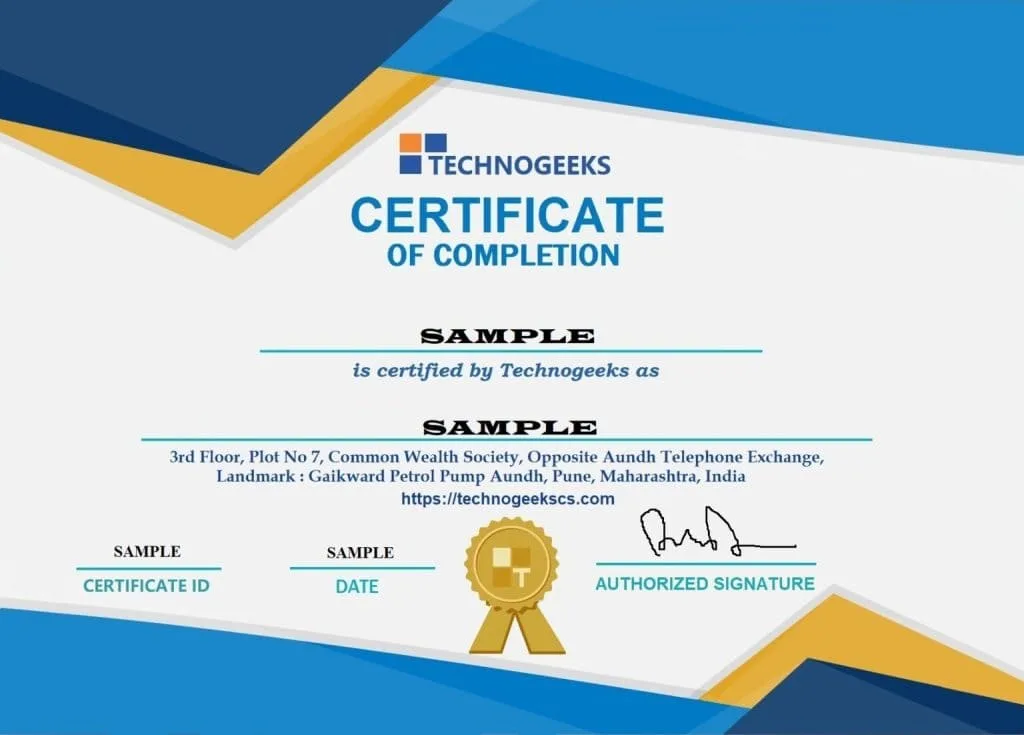- Home
- Courses
- DevOps classes in pune
- AWS DevOps course in Pune
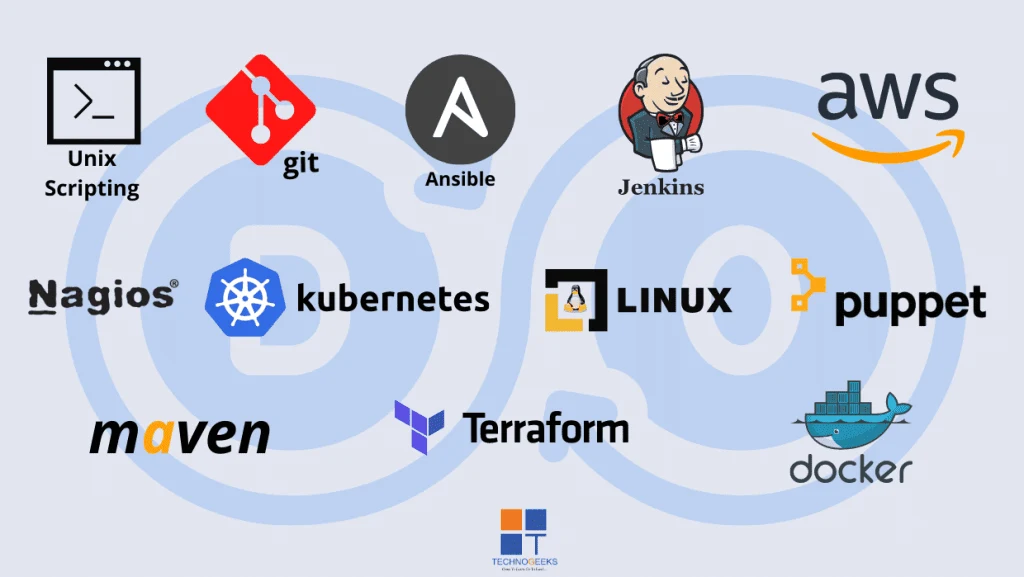
Duration of course: 70 hrs
Best DevOps course in Pune by a Placement-Oriented Software Training Institute with Certification & Placement
Are you searching for DevOps classes in Pune, particularly in a “near me” online / classroom?
If so, then the Technogeeks AWS DevOps Course is perfect for you!
Technogeeks’ comprehensive learning path will help you develop the skills and knowledge necessary to bridge the gap between software developers and operations professionals.
With a placement-oriented approach to training, we serve students in Pune, Pimpri-Chinchwad, and online.
Technogeeks Software Training Institute’s mission is to provide students with the necessary skills and knowledge to succeed in the IT industry.
Technogeeks’ 40 hours of interactive AWS DevOps Classes In Pune combines industry-based, job-oriented, hands-on, interactive training with assignments and real-time projects.
The DevOps Certification Course covers the best DevOps tools and methods to become a practitioner in DevOps. The DevOps course syllabus will include essential concepts and tools such as Git, GitHub, Jenkins, Puppet, Ansible, Maven, Docker, and Kubernetes. And apply these tools with best practices in real-world scenarios with hands-on experience.
Upon completing DevOps training, you will grasp DevOps principles, implement automation processes, and use popular DevOps tools.
So, start your DevOps journey immediately.
Enroll in our instructor-led Best DevOps Classes In Pune today and become a professional in two months!
DevOps is a rapidly growing field with a high demand for skilled professionals. In 2025, the job market for DevOps engineers is expected to be very strong, with lots of opportunities for those with the right skills and certifications.
According to India Times, the global DevOps market will rise at a rate of 24.24% per year, rising from $7.20 billion in 2021 to $8.95 billion in 2022. It is expected that the DevOps market will grow at a rate of 23.08% and hit $20.53 billion by 2026.
So it is very clear that learning DevOps is the best way to start and boost your career in 2025.
Module 01 - Basics Of Devops With Complete Introduction
- What is DevOps?
- Development + Operations
- Need of DevOps
- Problems faced by IT companies without DevOps
- Agile software development process and application in DevOps
- DevOps Delivery Pipeline
- DevOps Market Trends
Module 02 - Phases To Choose The Required Tools From DevOps Toolkit
- Planning (Development)
- Integration and Build
- Deployment
- Monitoring
- Operate/Operation
- Software distribution
Module 03 - Unix Shell Scripting
You’ll learn:
- How a script is executed
- Passing data to your script
- Write a script to back up a directory and relocate it to new location
Module 04 - DevOps And Cloud Concepts
- Introduction to EBS
- How EBS Works
- Snapshots
- Snapshot Restoring
- Pricing
- Assignment-4
Module 05 - Cloud Computing And AWS
- Introduction to Cloud computing
- Differentiation between cloud computing and in-house infrastructure
- Types of Clouds
- Cloud significance with DevOps Amazon Web Services
- Various AWS services· EC2, VPC, IAM, Elastic Beanstalk
Module 06 - Linux Administration
- Basics of Linux
- Types of Linux Distribution Available
- Command Line Interface
- Frequently used Linux DevOps commands
- Shell Scripting usage in Linux
Module 07 - Git
- Git Introduction
- Version Control System (VCS)
- Git as SCM
- GitHub Repository
- Git Bash Command-line Interface
Module 08 - Maven
- Maven Introduction
- Build Automation Process
- Software built and dependencies
- Maven Snapshot Build
- Git and Maven integration
Module 09 - Jenkins
- Introduction to Continuous Integration
- Implementation of continuous integration
- Jenkins Installation
- Jenkins Architecture and terms of Jenkins
- Overview of Jenkins UI and How to configure a system
- Configuring a Jenkins Job
- Introduction to Plugins
- Commonly used plugins (Git Plugin, container deploy, and Green Balls)
- Configuring Jenkins to work with Java, Git, and Maven
- Creating a Jenkins Build and Jenkins workspace
- Configure Jenkins to check for source code changes periodically.
- Creating a Freestyle Build Job
- Distributed builds & Notification System
- Joins
- Security
- Pipeline
Module 10 - Terraform
- What is Terraform?
- Use Cases
- Terraform V/s Other
- Installing Terraform
- Build Infrastructure
- Change Infrastructure
- Destroy Infrastructure
- Resource Dependencies
- Provision
- Input Variables
- Output Variables
Module 11 - Puppet
- Introduction to Puppet
- Puppet Master and Agent Setup
- Puppet Module
- Node Classification
- Puppet
- Environment
Module 12 - Ansible
- Introduction to Ansible
- Installation of Ansible
- Working with command-line tools
- Configuring Ansible Roles
- Write Playbooks
- Executing ad hoc command
Module 13 - Docker
- Docker Introduction
- Containers in Docker· Difference between VM and Container
- How to create and run Docker Image
- Docker Registry
- Docker Container Management
Module 14 - Kubernetes with AWS
- Why do I need Kubernetes and what can it do?
- Architecture
- Containers
- Workloads
- Pods
- Controller
- Create Cluster
- Deploy Application
Module 15 - Nagios
- Introduction to Continuous Monitoring
- Introduction to Nagios
- Installing Nagios
- Nagios Commands and Notification
What will you learn in the DevOps Training Course in Pune?
- A DevOps engineer who links software developers and operations specialists will be equipped for a job in this fast-growing area. Learn the finest DevOps tools and methodologies.
- The DevOps course in Pune will provide you with a detailed DevOps learning path through complete hands-on experience with each of the DevOps components that will advance your career in the DevOps field.
- The DevOps course syllabus includes DevOps tools, including Git, GitHub, Jenkins, Puppet, Ansible, Maven, Docker, Kubernetes, and other essential concepts and tools.
- The hands-on project will teach you about continuous deployment and configuration management tools such as Puppet, Ansible, and Jenkins.
- You will use Jenkins to achieve continuous integration within your software development lifecycle.
- You’ll get a full picture of how companies use DevOps in client projects by using DevOps.
- Understand and apply to terraform, including advanced terraform features.
- Learn how to install, build, change, destroy, and automate your infrastructure with Terraform. Its use cases
- You will learn about Docker containers, the difference between VMs and containers, how to create and run Docker images, Docker registry, and Docker container management.
Is DevOps certification worth IT?
Yes, DevOps certification is worth it. If you are a fresher, the DevOps certification helps you increase your knowledge, skills, and most importantly, it helps you get a job in the market as a fresher because the certification validates your skills and knowledge.
If you’re working professionally in the same field , then the DevOps certificate can improve your skills and knowledge means you learn advanced concepts, tricks and techniques. It can also help you to increase your salary.
Technogeeks provides certification level training to help you gain the skills & knowledge you need. We make sure our candidates get knowledge as per current market demand so they can easily get a job with a handsome salary package.
Also, the DevOps course syllabus is designed by industry experts to prepare you for certification. It covers important concepts and skills to help you succeed in both exams and real-world projects.
After completion of the course you will go through multiple mock interviews, CV preparation, 2 Real time hands-on projects and 100% placement assistance.
Who can enroll in a DevOps Course?
- Absolute Beginners
- Any Under-Graduates, Graduates, Post Graduate & Master’s holders.
Can a non-IT guy learn DevOps?
Yes, Non-IT background candidates can learn DevOps. Our course starts from scratch. Additionally, trainers are available to help candidates with any doubts they may have, ensuring a supportive learning environment where everyone can progress confidently.
Our main motive is to help candidates who are interested in learning DevOps and want to start a career in IT.
DevOps course near me, DevOps classes, and job placement near Aundh, Pune, Maharashtra?
Technogeeks is the best institute for providing DevOps classes with 100% placement assistance near Aundh, Pune, Maharashtra.
Skills Covered in DevOps Training
- DevOps Methodology
- Continuous Integration (Jenkins)
- Continuous Deployment (Docker)
- Configuration Management (Puppet, Ansible)
- Containerization
- DevOps on the Cloud
- Version Control (Git)
- Continuous monitoring (Nagios) and analytics
- Deployment Automation
- Cloud Platforms (AWS)
- Infrastructure Orchestration (Terraform)
KYC - Know Your (DevOps) Course
- Batches Completed: 12+
- Students: 200+
- Learning Mode: Live Interactive Online Training, Classroom Training in Pune
- Training hours: 40 hours of live interactive training
- Assignments: 30 hours
- Skills and Tools Covered: DevOps Methodology, Continuous Integration (Jenkins), Continuous Deployment (Docker), Configuration Management (Puppet, Ansible), Containerization, DevOps on Cloud, Version Control (Git), Continuous Monitoring (Nagios) and Analytics, Deployment Automation, Cloud Platforms (AWS), Infrastructure Orchestration (Terraform)
- Modules: 15
- Course Completion Certificate with Unique Verification ID
- Mentor Support: 1:1 Mentorship
- Resources: Classroom Recordings, Notes, Assignments, Projects, Interview FAQs
- Mock Interview
- Job Assistance: Telegram channel for placement assistance: https://t.me/technogeekssolutions OR search for “technogeeks solutions”
- Reviews: 1700+ reviews on Google by students with a 4.8 average rating
What is DevOps?
The term DevOps refers to the integration of cultural practices, tools, and philosophies that increase an organization’s capability to provide applications and services at a rapid speed. As a result, DevOps helps the companies to develop and improve products more quickly than they can with conventional software development and infrastructure management methods. Therefore, the organizations can provide better customer service and improve their competitive level.
What are the benefits of DevOps Training Course?
Enroll in the DevOps training course at Technogeeks which is the best devops training institute in pune to secure a high-paying job as a DevOps Engineer. As the DevOps market exceed USD 10.4 billion in 2023 and increased CAGR (Compound Annual Growth Rate) of 19.7% from 2024 to 2028, this course will enhance your skills and knowledge needed to excel in roles such as DevOps Engineer, DevOps Manager, DevOps Architect, and DevOps Lead etc.
Is DevOps high paying?
DevOps is a high-paying field in IT, mostly for experienced engineers. The demand for skilled professionals is strong, and factors like experience, skills, and location affect salaries etc which makes it a successful career.
Is AWS DevOps in demand?
AWS DevOps skills are in high demand and are expected to grow. Most of the Known companies Uses cloud computing and DevOps, therefore the need for qualified professionals is also growing.
Is DevOps good for freshers?
DevOps can be a great career choice for freshers who are eager to learn. Although some companies prefer experienced candidates, many are open to hiring freshers with a good knowledge of DevOps principles and tools.
- 0% interest installment option.
- The basics of networking and the Unix command line are recommended but not necessary, as they are covered in DevOps training.
- Pay only after attending one free trial of a recorded lesson.
- The syllabus includes basic to advanced DevOps topics.
- Experts and professionals from the IT industry conduct in-person, live interactive sessions.
- A comprehensive course covers all aspects of DevOps.
- Carefully selected questions to provide you with all the practice you need during training.
- Classroom and Online Training: You can switch from online training to classroom training.
- Tips from working professionals with years of experience in Java development on how to write clean and reusable code
- The course is designed for non-IT and IT professionals.
- Evaluation after each topic’s completion
- Proof of concept (POC): to demonstrate or self-evaluate the concept or theory taught by the instructor.
- Hands-on experience with real-time projects
- Resume Building and Mock Interview with the Technogeeks Team
- 100% placement assistance means that you will get guaranteed interview calls until you get placed.
- Get a shareable completion certification from Technogeeks with a unique identification number.
- Weekday and weekend batches are available.
- Get one-year access to class recordings.
- In DevOps, we build and execute the CI/CD (continuous integration/continuous delivery) pipeline and learn to develop complete modules and patches.
- You will also integrate the cloud platform to build and deploy DevOps applications.
- You will simulate the project to get an idea of how we use multiple tools in the DevOps pipeline. These tools are Jenkins, Puppet, Git, and Terraform to manage applications, monitor jobs, and take appropriate action as per requirements.
- You will learn the best practices and real-time use cases to get a clear idea of project best practices with use cases.
- You will practice on an in-premise machine and in a cloud-based virtual environment to deploy applications, monitor, and enhance.
Instructor-led DevOps Live Online/Classroom Training
Checkout Latest Batch Schedule
A DevOps Training Completion Certificate from Technogeeks Will Help You With:
- Career Opportunities in DevOps
- Improving Reputation as a Skilled Professional
- Competitive advantage among the cohort
- Proof of Learning
- Establishing professional credibility
12+
Batches Completed
Industry Oriented Syllabus
Designed By Expert
200+
Happy Students
Self Assessments
Quizzes, POC
8+
8+ Years Of Experience
Recorded Sessions
1 Year Of Access
Our trainers are experts in their fields. They simplify complex concepts for the students and make them easy to understand. They solve each and every type of student’s query. Their teaching method is more focused on real-time examples, preparing the students for industry interviews. Students will have one-on-one coaching sessions with them so that they will be able to ask questions at any time.
Key Highlights of Our Trainers:
- Certified Professionals with Over 8 Years of In-Depth Experience
- Imparted Knowledge to Over 2,000 Students Annually
- Demonstrated Strong Theoretical and Practical Expertise in Their Respective Domains
- Possess Expert-Level Subject Knowledge and Stay Current with Real-World Industry Applications
Our Candidate's Placement Record!
Book Your Seat Now ! At just ₹5000!
No Cost Two Easy Installments!











Why Learn AWS with DevOps?
Amazon AWS’s web services can help businesses build and release products quickly and effectively by combining DevOps methods. These services simplify
- Infrastructure setup
- Application code posting
- Software release automation
- App and infrastructure success tracking
Learning AWS with DevOps may help firms build things faster, more reliably, and more efficiently. It also gives them additional app and system performance control.
Can I Attend a Demo Session before Enrolment?
Before enrolling, you can watch a recorded demo session to evaluate the quality of the course content and the instructor’s teaching style.
Will I Get Placement Assistance after finishing this DevOps Course?
Yes, we do provide placement assistance, in which how we work on real-time projects will be taught, resume preparation will be provided, and job openings will also be provided. More than 80% of candidates have changed their profile by getting either promoted or new job offers on a good package.
Check out our Telegram Channel for Placement Assistance (open in a mobile browser): https://t.me/technogeekssolutions
What if I miss a DevOps class?
If you miss classes, you can get recordings of the lectures.
DevOps Certification Course Fees In Pune
Technogeeks software training institute provides multiple software courses in Pune location and DevOps course is one of them. We are providing online/offline courses, Handson project, well experienced trainers, and career guidance with placement assistance. DevOps With AWS course duration is 2-3 months at nominal charges in Technogeeks. You can pay the two installments, which is inclusive of enrollment fee of 2000 rupees and GST.
Should I learn DevOps with AWS after AWS Cloud Computing Training?
As the business world is going on the cloud and there is a need for constant updates to software and hardware, recruiters are looking for developers who have experience with DevOps practices and are in high demand.
After completing AWS Cloud Computing training, it is recommended to continue learning DevOps, as it can enhance your skills and make you a more valuable asset to organizations. DevOps and AWS are complementary to each other.
What is DevOps Course?
Through culture, practices, and technologies, DevOps helps companies build faster services. This makes it possible for the organization to change and improve its products much faster than with standard software development and infrastructure management.
Organizations can better service their clients and compete in the market because of this quickness.
DevOps a good career in 2025?
DevOps is a relatively new field to switch to if you are already working as an AWS architect or developer. It will be a very good step in my career.
Depending upon the organization, a DevOps practitioner may be called a system engineer, automation architect, automation engineer, release manager, integration specialist, developer-tester, security engineer, or DevOps architect. DevOps will develop alongside the software sector and provide many jobs.
DevOps will be crucial, difficult, and powerful for years. If this trend and career path attract you, try AWS DevOps. It is a good combination to start a career in DevOps.
What is Terraform in DevOps?
Terraform is an Infrastructure as Code service tool. With the software sector, DevOps will flourish and provide more jobs.
For years, DevOps will be crucial and difficult. It can manage both cloud service providers and custom in-house solutions at the same time. It lets you make setup files for the parts of an app (or a data center).
We’ll learn how to use Terraform’s core features with DevOps during the course (at Technogeeks!).
Why should you learn Docker in DevOps?
Docker allows you to run many programs on a Linux kernel. This lets you make software units called containers that are small, movable, and self-sufficient.
With containers, you can put together all the parts of an app into a single block that can be quickly deployed and scaled on its own. They make it easier to move apps from one computer to another and even between cloud systems.
This self-sufficient software, Docker Images, contains everything needed to run a particular application. These images can be deployed anywhere there’s a Linux system running.
Docker creates portable applications. There is no need to download anything to develop and test your app. Just download the picture and start writing.
What is Kubernetes in DevOps?
Kubernetes simplifies running and controlling containerized programs. It automates container creation, upgrading, and management.
Kubernetes makes large-scale app management very easy. It helps them remain online and function properly if anything goes wrong or changes.
Using Kubernetes, developers can focus on writing their code while the platform takes care of the underlying infrastructure and scaling needs.
What is a Puppet tool in DevOps?
DevOps is an open-source system management tool. Configuration management is automated with Puppet. It is built with Ruby DSL (domain-specific language). It allows IT administrators and system engineers to deploy, configure, and manage the large-scale infrastructure efficiently and effectively. Reduces server management time and effort.
Puppet lets developers configure hundreds of servers with one command.
It can also monitor and guarantee system compliance with business regulations. The puppet agent and server communicate securely and are encrypted.
It is easy to deploy it on different platforms, like Linux and Windows. It supports IBM mainframes, Cisco switches, and Mac OS servers.
A complete set of APIs integrates it with other systems and apps.
What is a DevOps engineer?
DevOps engineers play one of the most important roles in software development today for continuous software updates.
- DevOps engineers ensure that all project components meet team objectives throughout software development.
- They make sure that the software development life cycle has the right processes, tools, and methods in place to meet all of its goals. Everything from developing code and putting it online to operating it and adding features
What are the DevOps engineer skills?
DevOps engineers typically require a mix of technical and soft skills, including:
- Strong knowledge of Linux/Unix administration
- Experience with automation and configuration management tools (such as Ansible, Puppet, or Chef)
- Understanding the software development lifecycle and Agile methodologies
- Docker and Kubernetes expertise
- Knowledge of AWS, Azure, or Google Cloud
- Experience with continuous integration/continuous deployment (CI/CD) pipelines
- Networking concepts and protocols
- Strong scripting skills (e.g., Python, Bash)
- Collaborate with development and operations teams.
- Good problem-solving and critical thinking skills
- Excellent communication and interpersonal skills.
The DevOps role’s duties, industry, and organization may determine the skill set needed.
What are the key components of DevOps?
Continuous Integration (CI)
Tools used: Jenkins, Travis CI, CircleCI, and GitLab CI/CD
Continuous Deployment (CD)
Tools used: Jenkins, Travis CI, CircleCI, GitLab CI/CD, AWS CodeDeploy, Azure DevOps, and Heroku.
Infrastructure as Code (IaC)
Tools used: Terraform, CloudFormation, Ansible, Puppet, Chef
Monitoring and logging
Used Tools: Nagios, Zabbix, Datadog, New Relic, and ELK Stack (Elasticsearch, Logstash, Kibana).
Microservices
Used Tools: Docker, Kubernetes, Mesosphere DC/OS
Automated Testing
Used Tools: JUnit, Selenium, TestNG, and Cucumber
Collaboration and communication
Used Tools: Slack, Microsoft Teams, Jira, GitHub
Containerization
Used Tools: Docker, Kubernetes, Mesosphere DC/OS, OpenShift
What are the Devops engineer roles and responsibilities?
- DevOps engineers manage system and service performance, availability, and security.
- DevOps needs to investigate and resolve technical issues, provide Level 2 technical support, perform root cause analysis for production errors, build tools to improve the customer experience, and develop software to integrate with internal back-end systems.
- DevOps are expected to deeply understand the CI/CD technologies and agile processes used in the software development life cycle, including continuous integration, automated testing, and deployment.
- DevOps sometimes needs to work with other engineers to develop new features and technologies.
What are DevOps engineer job opportunities in Pune?
DevOps engineers in Pune are expected to have a strong understanding of the various tools and technologies used in the DevOps space.
You must understand:
- source code
- automation
- cloud computing
- containerization
DevOps engineers must also know Kubernetes and Docker: application development and deployment frameworks.
System security and compliance are equally important for DevOps developers.
If you search “DevOps engineer jobs in Pune” on Google, you will find there are 298 job openings and more than 3000+ vacancies for various DevOps jobs.
You can also check the “Job Openings” page for “DevOps Jobs” for the students who enrolled in or completed our DevOps classes in Pune or online DevOps training.
What is meant by DevOps course with placement?
The DevOps course with placement training provides students with the necessary skills to become a DevOps practitioner. In this course, you will get a better understanding of:
- How to automate tasks
- Create infrastructure using code.
- Manage configurations
- Coordinate processes
- How to work with containers
- Work with cloud systems.
You will also learn to communicate, collaborate, and work together.
After completing the DevOps course, students can appear in a mock interview with working professionals to prepare for interviews.
Technogeeks placement assistance provides students with fast-forward contact with the companies where openings are open.
What are DevOps tools?
Any successful software development project requires DevOps tools as an important component.
The following are common DevOps tools that developers use:
- Jenkins is a CI/CD platform that speeds up software development, testing, and deployment.
- Docker is a platform for containerization, so basically, it helps teams split application processes into separate containers, making the management and scaling of applications easier.
- The open-source DevOps tool Puppet lets teams set up and maintain server settings.
- Ansible automates IT tasks using configuration management and orchestration.
- Terraform helps teams manage and develop cloud infrastructure using infrastructure as code (IaC).
- The AWS cloud computing platform lets teams create and manage cloud apps.
- Open-source Nagios lets teams monitor and troubleshoot system performance.
- Git is a version control system that allows teams to track and manage changes to code over time.
Teams can build, deploy, and maintain software quickly and efficiently using these tools.
Do DevOps need to know scripting?
DevOps requires scripting for task automation and code repository management.
DevOps pros may automate activities and manage code repositories using it.
With ever-changing technology, landscape scripting enables DevOps professionals to keep their applications and systems up and running efficiently.
Is DevOps a good career in India?
DevOps engineers in India are among the highest-paid professionals in the IT industry. Recent salary forecasts show that a DevOps engineer in India may earn 6.0 lakhs per year (from 4.2 lakhs to 12.5 lakhs). These are some of the highest-paying IT jobs.
Senior DevOps engineers can expect to earn even more, with the highest reported annual salary of Rs 45 lakhs. The top 10% of DevOps engineers make over ₹32 lakhs annually. The top 1% earn over ₹42 lakhs annually.
Can I learn DevOps in 2 months?
The time it takes to learn DevOps is determined by factors such as your past knowledge and expertise, the level of the topics addressed, and the learning materials accessible.
DevOps is not a single technology.
Tools + technologies + processes to automate and optimize software delivery and operations = DevOps.
You can learn the basics of DevOps in just a few days. However, understanding the complete DevOps ecosystem will take months of practice and experience.
What is the salary of a DevOps Engineer with 5 years’ experience?
The time it takes to learn DevOps is determined by factors such as your past knowledge and expertise, the level of the topics addressed, and the learning materials accessible.
DevOps is not a single technology.
Tools + technologies + processes to automate and optimize software delivery and operations = DevOps.
You can learn the basics of DevOps in just a few days. However, understanding the complete DevOps ecosystem will take months of practice and experience.
Do DevOps need coding?
DevOps, as the name implies, refers to the collaboration of Development and Operations Teams. You must learn standard code from the top institute to participate in DevOps. Although extensive coding skills are not required, a necessary coding environment is tempting. Other DevOps technologies are needed to copy and compose queries in a particular language.
Is AWS DevOps in demand?
There are various reasons as to why opting for DevOps as a career option can be beneficial. First of all, roles associated with DevOps are high on demand. You can expect your day-to-day operations to be exciting, challenging, and learn every day throughout your career if you’re passionate about Information Technology. Thirdly, with time, you can expect to make good progress both in terms of your designation and salary.
Which language is best for DevOps?
A person going for the DevOps field should have the knowledge of following languages.
- Python
- JavaScript
- Ruby
- C/C++
- Perl
- SQL
- PHP
- Java
- Bash
- Scala
Which language is best for DevOps?
A person going for the DevOps field should have the knowledge of following languages.
- Python
- JavaScript
- Ruby
- C/C++
- Perl
- SQL
- PHP
- Java
- Bash
- Scala
Can freshers learn DevOps?
Yes. If you complete the necessary training for DevOps, then you can become a DevOps Engineer even as a fresher. Although, you will be facing many experienced people. You must know many DevOps tools to become a DevOps Engineer. And must be able to use various technologies like deployment, testing, and development.
What is DevOps with AWS?
DevOps integrates cultural ideas, practices, and technologies to improve an organization’s capacity to provide applications and services at high velocity: changing and enhancing products quicker than traditional software development and infrastructure management procedures.
Is AWS DevOps easy?
It’s not simple to learn DevOps and AWS. It necessitates a familiarity of fundamental DevOps ideas, AWS technologies and programming languages.
This is why we at Technogeeks created this course! This DevOps on AWS course breaks down basic DevOps and AWS ideas and expands on them to teach you how to write using DevOps and AWS, as well as test and deploy your apps on the cloud platform.
What is the salary of DevOps with AWS?
AWS Devops Engineer salaries in India range from 3.9 Lakhs to 12.0 Lakhs per year, with an average yearly income of 6.0 Lakhs.
Is AWS DevOps good for freshers?
Yes. If you complete the necessary training for DevOps, then you can become a DevOps Engineer even as a fresher. Although, you will be facing many experienced people. You must know many DevOps tools to become a DevOps Engineer. And must be able to use various technologies like deployment, testing, and development.
What is the difference between DevOps and DevOps with AWS?
- AWS is a cloud vendor that provides various possibilities, including the ability to construct virtual machines with the majority of the functionality of a physical computer like hardware, networking and pre installed application applications like web servers and databases.
- DevOps examines many components of the Development and Operations processes while seeking to expand infrastructure and reduce the SDLC (Software Development Life Cycle).
As a result, DevOps employs AWS services to automate processes like deploying application code, managing software release cycles and keeping track of how well your infrastructure and applications are performing.
About Pune: Why is Pune considered a “Student’s Paradise”?
Pune, oh, it’s known as the “student’s paradise” for some really good reasons. You see, this city has this amazing blend of rich educational opportunities and a vibrant, youthful culture.
First off, there are world-class universities and colleges in Pune. The place is like an educational hub.
You’ve got places like the University of Pune, which is a big name in itself, and then there’s the Film and Television Institute of India (FTII), which is renowned globally for cinema and television education.
Some of the most visited attractions in Pune are:
- Sinhagad Fort
- Shaniwar Wada
- BAPS Swaminarayan Temple
- Aga Khan Palace
- Saras Bag
- Pashan Lake
- Khadakwasla Dam
With a student-friendly environment, it’s no wonder they call it a “student’s paradise.”
Students from all over the country flock to Pune to enroll in various programs. And it’s not just about the University of Pune; there are numerous other institutions that provide a wide range of courses, like Technogeeks.
The legacy of education in Pune is truly rich, and that’s why students come here for a promising future.
But Pune isn’t just about academics. Making it a hotspot for professionals, the city offers excellent job opportunities.
It’s considered the second-largest IT hub in India, so tech enthusiasts find their haven here.
And let’s not forget the weather. Pune boasts a lovely climate throughout the year, which is quite a relief compared to some other cities with extreme temperatures.
What is DevOps LifeCycle?
DevOps is the superior software development process that includes phases like Continuous Development, Testing, Integration, Deployment, and Monitoring etc throughout the entire development life cycle. This mechanism is followed by DevOps, setting it apart from Agile and Waterfall methods. That’s why the famous industry giants like Facebook have a strong hold on DevOps as the key to achieving their business objectives.
Who is a DevOps engineer?
DevOps engineers play one of the most important roles in software development today for continuous software updates as well as maintaining smooth communication between development and operational teams .
- DevOps engineers ensure that all project components meet team objectives throughout software development.
- They make sure that the software development life cycle has the right processes, tools, and methods in place to meet all of its goals. Everything from developing code and putting it online to operating it and adding features.
- By Following the phases like continuous development, testing, integration, deployment, and monitoring etc, they ensure maximum profitability for the product.

4.8 rating by more than 2000+ reviewers on Google!
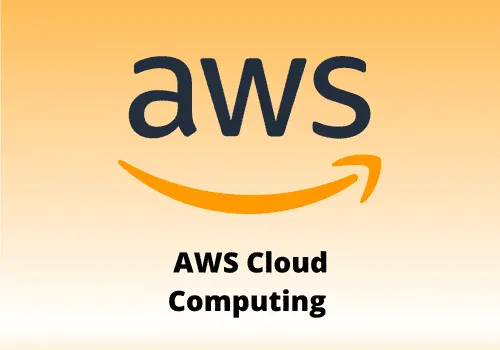
Lean AWS Cloud with hands-on experience in sevices like Lambda, CloudFront, RedShift, S3, EC2, VPC, and more.
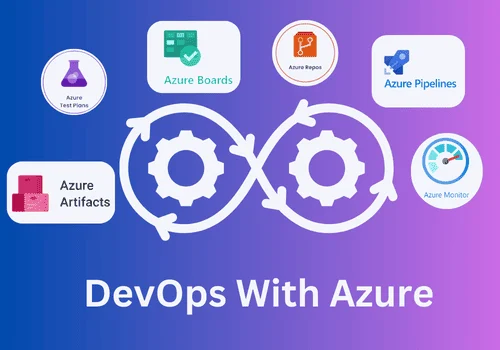
Technogeeks Azure DevOps Certification Course is designed to help IT professionals and beginners gain experience in the tools and technologies of Microsoft Azure DevOps including Azure Boards, Azure Repos, Azure Pipelines, Azure Artifacts, etc. Also, Cover DevOps tools like Puppet, Ansible, Git, Jenkins, Docker, Kubernetes, etc.
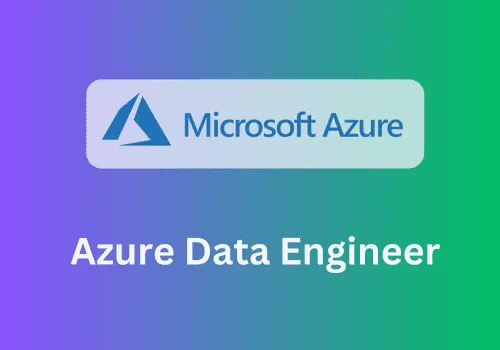
Azure Data Engineer training in Pune will teach you data engineering concepts like how to collect, store, transform, clean, and load data.
You get hands-on experience with Azure services like Azure Data Storage, Data Factory, Azure Synapse Analytics, Data Warehousing concepts, How to Optimize Data Queries in Azure, Azure Databricks, and many more.
DevOps Certification Training locations in Pune: Bajirao Road [411002], Yerwada [411006], Kasba Peth [411011], Dhanori [411015], Pune City [411022], Hadapsar S.O [411028], Airport [411032], Afmc [411040], Karve Road [410038], Ammunition Factory Khadki [411003], Aundh [411007], Dapodi [411012], Gokhalenagar [411016], Kudje [411023], Kothrud [411029], Mundhva [411036], Tingre Nagar [411000], A.R. Shala [411004], Baner Road [411004], Magarpatta City [411013], Botanical Garden [411020], Khadakwasla [411024], Lokmanyanagar [411030], Bibvewadi [411037], Bhavani Peth [411042], Dhayari [411041], Dhankawadi [411043], C D A O [411001], Shivajinagar [411005], Parvati [411009], 9 Drd [411014], Armament [411021], Donje [411025], Bopkhel [411031], Bhusari Colony [411038], Haveli [411045], Jambhulwadi [411046], Lohogaon [411047], Khondhwa [411048], Anandnagar [411051], Navsahyadri [411052], Chatursringi [411053], Gokhalenagar [411055], Warje [411058], Mohamadwadi Kadvasti [411060], Janaki Nagar [411066], Aundh [411067], Pimpri Chinchwad [411078], Nanded [411230], Gondhale Nagar [412029], Sathe Nagar [412047], Alandi Devachi [412105], Ambarvet [412115], Ashtapur [412207], Manjari Farm [412307], Phursungi [412308], Viman Nagar 411014, Shaniwar Peth [413337], Wakad [411057], Kothrud [411038], Shivaji Nagar [411005], FC Road [411004], Hadapsar [411028], Balewadi [411045], Baner [411045], Pimple Saudagar [411027], PCMC (Pimpri Chinchwad) [411018]
Locations Offered: DevOps Course viman nagar, DevOps Training in kalyan nagar, DevOps Training in magarpetta, DevOps Training in pimpri chinchwad, DevOps Classes in yerwada, DevOps Classes in kharadi, DevOps Classes in vishrantwadi, DevOps Classes in deccan, DevOps Course in Katraj, DevOps Training in warje, DevOps Certification Training in bavdhan, DevOps Certification in boat club road, DevOps Certification in model colony, Best DevOps Training in pune, Best DevOps Course in pune
CONTACT US TO DISCUSS HOW WE CAN HELP YOU.








